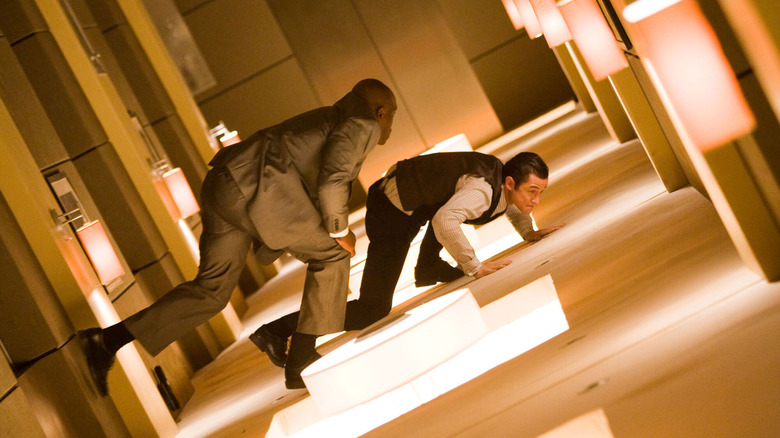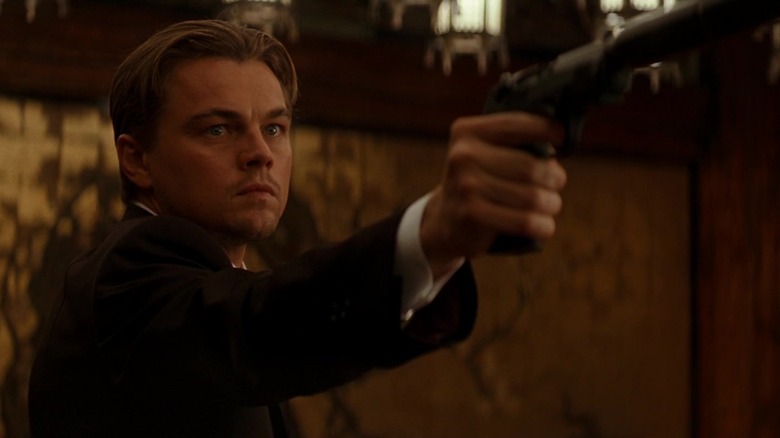A Lifelong Fascination Led Christopher Nolan To Inception
Christopher Nolan isn't afraid to make high-concept films. From the never-ending memory hole at the center of "Memento" to the high-level theoretical science that propelled "Interstellar," Nolan never feels the need to dumb himself or his ideas down.
This is part of the reason that Nolan is one of the better-regarded directors in the business today. He isn't afraid to take swings at big ideas, and even when they don't exactly land, like with his most recent effort, "Tenet," you can appreciate the breadth of thinking he clearly puts into all of his films.
One of the highest concept pictures Nolan has made is "Inception." The film stars Leonardo Di Caprio as a thief who enters people's dreams in order to steal information. Like many of Nolan's films, the movie is heavily based on its central premise — in this case, that you can enter the dreams of others. It's visually creative and mentally stimulating, and the ending with the spinning top still confuses your friend who didn't pay enough attention during the movie.
When it comes to a director like Nolan, you may wonder where he gets his ideas. Luckily for us, the filmmaker revealed in a 2010 Collider interview that the inception of "Inception" was based on a lifelong fascination with dreams.
Dreams come true
The job of a director can be seen as the filmmaker putting their dreams to film — they need to take their vision of how a story should look and be told, and transform that dream into a reality for the audience. According to the Collider interview, Nolan has always seen the connection between dreams and cinema:
"I've been fascinated by dreams my whole life, since I was a kid, and I think the relationship between movies and dreams is something that's always interested me, and I liked the idea of trying to portray dreams on film. And I'd been working on the script for some time, really about 10 years in the form that you've seen it in, where [there's] this idea of this kind of heist structure. I think really for me, the primary interest in dreams and in making this film is this notion that your mind while you're asleep you can create an entire world that you're also experiencing without realizing that you're doing that. I think that says a lot about the potential of the human mind, especially the creative potential. It's something I find fascinating."
And so with a generous $200 million budget, Nolan explained in an SFWeekly interview how he tried to make the movie reminiscent of a dream itself:
"Dreams feel real while we're in them; it's only when you wake up that you realize something was actually strange. I hadn't seen a film before that said, 'Okay, we're going to give the dream exactly as much validity as the real world within the film,' and in that way, hopefully get closer to the experience we all have, really, of being fooled by a dream."
And with the way "Inception" captured people's imaginations, I'd say we were fooled.

